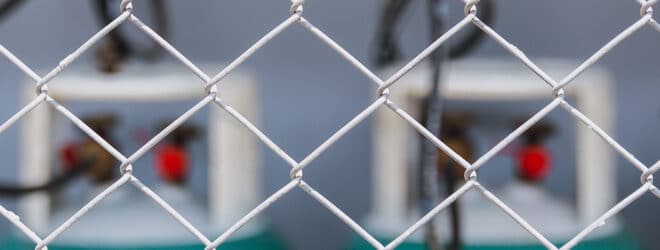With colder weather and more people gathering outside, propane patio heaters are becoming a common sight at restaurants, outdoor dining areas, outdoor exercise facilities (under tents and pavilions) and even around picnic tables. These heaters provide comfort, but they also bring safety concerns if not handled or stored properly.
By following safe storage and usage practices, you can reduce the risk of accidents and keep both your business, and your customers protected.
Risks associated with patio heaters
Patio heaters, particularly radiant-type units, produce strong heat and require clearance of at least eight feet. The fuel source can either be liquified petroleum gas (LPG) or electric. While they’re effective at keeping guests warm, they can also pose hazards if used incorrectly. Some risks include:
- Fire hazards from nearby flammable materials.
- Carbon monoxide poisoning if used in enclosed spaces.
- Units tipping over if not secured properly.
- Burns or injuries from improper handling.
Because accidents can happen suddenly, it’s important to ensure that propane patio heaters are always used and stored in line with safety guidelines.
Safe storage of propane cylinders
Improper storage of propane cylinders is one of the biggest risks that businesses can face. To reduce the chance of accidents, consider the following:
- Do not store propane cylinders inside a building, including mechanical or maintenance rooms.
- Always store cylinders in a secure location that reduces exposure to heat and prevents tipping.
- Keep cylinders at least five feet away from any doorway in buildings that the public may access.
- Follow all manufacturer storage guidelines.
Safe usage of propane patio heaters
Even when heaters are stored correctly, unsafe usage can put employees and customers at risk. Best practices include:
- Only use certified propane heaters that are approved by recognized testing organizations such as UL/ULC, CSA, or FM. These certifications ensure the equipment meets essential safety standards.
- Only use propane heaters in well-ventilated outdoor areas.
- Place heaters on level ground and secure them to prevent tipping.
- Keep heaters at least three feet away from combustible materials, including plants.
- Never use heaters in enclosed spaces to reduce the chance of carbon monoxide poisoning.
- Turn off heaters when the area is not occupied.
- When positioning heaters in tented areas or pavilions, place them strategically to avoid obstructing walkways or creating trip hazards for customers and staff.
- Regularly inspect, clean and maintain heaters and propane tanks.
- Ensure fire extinguishers are available and accessible near the heaters.
- Train staff on safe operating procedures and always follow manufacturer instructions.
Why safety matters
Patio heaters can enhance the customer experience by extending the use of outdoor spaces during colder months. But if not managed properly, they can create liability risks for your business. Safe storage, proper usage, and routine maintenance not only can help protect people and property but also ensure compliance with regulations and insurance requirements.
Protect your business with insurance
Outdoor heaters can boost comfort and extend the use of outdoor spaces, but they also introduce risks that businesses can’t afford to ignore. By following safe storage and usage practices, you can help reduce hazards and protect your property, employees, and customers. To learn more about how you can safeguard your business against such risks, visit our Business Insurance page today.




